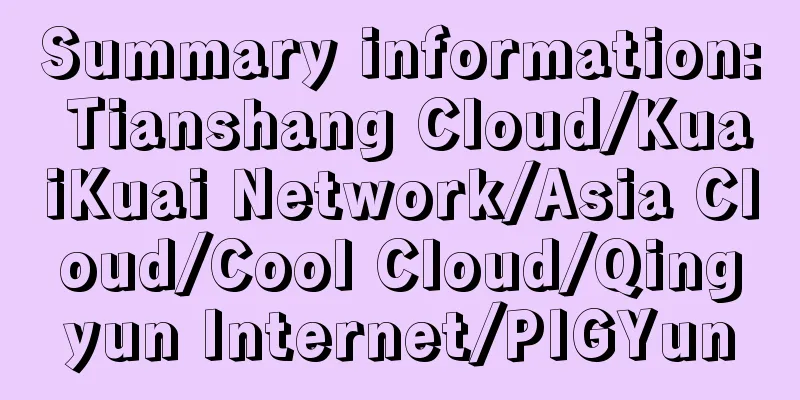Gossip about the upcoming 5G era: the three-player pattern

|
5G is coming soon, and now is the eve of it. Let's take a look back at the past 17 years. What have the three major operators done? China Unicom was busy with mixed-ownership reform, China Telecom was busy with expansion (building 400,000 4G sites a year), and China Mobile was secretly deploying FDD networks. China Unicom is doomed to be miserable. If the mixed-ownership reform had been carried out three years ago, there might have been room for recovery. But now, it is just a last-minute effort. The timing is wrong. 2018 is the first year of 4G. In 2019, China will usher in the great 5G era. It is almost impossible for China Unicom to complete the mixed-ownership reform in just one year, to go into battle lightly and to gather strength. It is like starting training on the eve of a war, which is doomed to be too late. China Mobile is already the only dominant player, and is destined to become even more monopolistic in the future. This is related to the country's strategy. Many people think that the country's construction of towers and the mixed-ownership reform of China Unicom are a way for the country to suppress China Mobile and make the three major operators more balanced. This is just seeing things in the fog, and seeing the surface does not reflect the essence of the problem.
Let's go back to 2008. The Ministry of Industry and Information Technology took the lead in merging China Netcom and China Unicom. CDMA was sold to China Telecom and China Tietong was merged into China Mobile. Three 3G licenses were issued at the same time. On the surface, China Unicom got the best WCDMA, a good hand. China Telecom opened the mobile broadband integration mode with its broadband advantage. China Telecom and China Unicom could both turn things around at this time. If they had risen at this moment, they might have had a chance. However, after five years, when the time came to 2013, China Telecom and China Unicom's 3G users were not even as many as China Mobile's. Does anyone want to ask why at this moment? The country gave the least mature TD to China Mobile with the greater intention of maturing its own standards through China Mobile, thereby cultivating a group of related industries with completely independent intellectual property rights. This is the country's strategy, and it will also allow China Unicom and China Telecom to use more mature international standards to gradually narrow the distance with China Mobile. If the development of the international communications industry had not been so fast, and if China Mobile had not been so strongly and urgently promoting 4G, perhaps China Telecom would still have time to slowly narrow the gap with China Mobile. However, time waits for no one, and the gap that China Mobile had fallen behind in the 3G era was made up overnight in the 4G era. China Mobile's turnaround is the result of a combination of factors. TD is immature and optimization has been fruitless. China Mobile must adopt 4G, otherwise its leading position will fade away. This is also in line with the national strategy. The international community has already begun to deploy 4G in 2010, while China's 3G network has just been commercialized for the second year. China Telecom has no courage, no determination, and no willingness to promote 4G. As a result, after the TDD license was issued, only China Mobile launched TDD in a stormy manner. Everyone can see that China Telecom's idea is very simple, which is to wait for FDD. According to China Mobile's internal statement, the coverage of one FDD is equal to 2.5 TDDs. This is determined by the frequency and there is no way to change it. But as for the capacity, that's it. But China Telecom doesn't care. Anyway, I don't have many users, so FDD is enough. China Mobile took the lead in TDD in 2013, and China Telecom only came late after obtaining the FDD license in 2015. By then, China Mobile had already developed 300 million 4G users, which is no exaggeration to say that it was a great leap forward. From this time on, China Telecom completely lost the opportunity to surpass China Mobile. Many people probably did not expect that China Telecom's FDD and China Mobile's TDD would change the situation where China Telecom's signal coverage was inferior to China Mobile's in the 4G era. Relying on the joint construction and sharing of towers, the distance between China Telecom and China Unicom would be quickly shortened. However, they did not think deeply about what roles China Mobile, China Telecom and China Unicom play respectively in the national strategy. This problem can best be illustrated by a move made by China Mobile at the end of 2017. China Mobile has started large-scale FDD construction without a license, but it has already built 400,000 FDD base stations in 2017 and plans to build 1.5 million in 2018. Although it does not have a license, how can China Mobile dare to build like this without the approval of the top leaders? Why is there a need for Liang if there is Yu? Has no one thought about why? China Mobile has become so dominant, why does the country still need to give it FDD? Because 5G, yes, it is 5G! The arrival of a new era and the embodiment of a country’s will. China Mobile has 400 billion in cash and makes a profit of 100 billion every year, which is far beyond the reach of China Telecom. If the country wants to realize the national strategy of following 3G, synchronizing 4G, and leading 5G, it is unrealistic to rely on China Telecom. This is why the country wants to give China Mobile FDD. Among the 5G standards dominated by China Mobile, the TDD+FDD dual networking mode is the mainstream of 5G in the future. With the global unified 5G standard, there is no longer any question of what standard or license to use. Telecom cannot always hide in the comfort of leading standards. Without this vision, it will always fall behind others. We can now imagine a new era, where hundreds of high-definition cameras on the main roads of the city will transmit surveillance videos to the city's cloud computing center in real time, where the intelligent face recognition system will make it impossible for criminals to hide. Traffic lights will calculate the emergency control time for each pass based on the background calculation data. Live broadcasting will be introduced into the VR era. Put on glasses and a living person will be like being by your side. Unmanned cars will enter life from concept. You only need to drive to the door of the company, and then your car will automatically drive away and find a parking space to stop. Express delivery will be able to make appointments with you, and you can even use remote cameras to pick apples that are still on the tree at will. Relying on cloud recognition, when the apple is picked, it will be automatically sent to your door. Automatic robotic arms will allow you to make an appointment with a surgical expert in Beijing in a fifth-tier city to perform difficult surgeries on you. 5G is the era of the Internet of Everything. There is nothing that cannot be done. For China's rise, 5G is a necessary condition. China Mobile has made preparations for this. It has the support of the state, funds, 800 million users, the right time, the right place, and the right people. China Mobile is the leader in 5G and we are the only one in the world! On the eve of this, China Unicom was still struggling with mixed-ownership reform. The 70 billion yuan investment was just a drop in the bucket, and it was destined to be completely marginalized in the next three years. Telecom could still fight, but if it still failed to see the national strategic focus and tried to rely on the sword of breaking the monopoly to forcibly share the pie, it would eventually be further and further away from the future. As for the 2G network, China Unicom is gradually shutting down the network. China Mobile will definitely shut down the network later. It depends on the development of VOLTE and whether the advantages of FDD can be reflected in VOLTE. If the development is good, it should be gradually shut down in 5 years. China Mobile has long been determined to shut down the 3G network. Now it is basically in a state of no maintenance. China Telecom will probably delay the shutdown. The development of China Telecom's VOLTE is too slow. I don't understand what China Telecom is thinking. Since it has done FDD, it will do VOLTE wholeheartedly and shut down CDMA to save a lot of maintenance costs. As for China Unicom, I can't see its attitude towards WCDMA now. This is China Unicom's bottom line, just like 2G is China Mobile's bottom line. China Unicom may want to toss around with 3G for a few more years. 4G network, China Mobile will build a high-quality 4G network, which can be seen from China Mobile's actions, TDD+FDD dual networking, after building 1 million FDD stations in 2018, let's see how the subsequent optimization effect is. China Mobile treats 4G just like it treated 2G before. China Telecom focuses on FDD, and some key areas have TDD+FDD. The weakness of China Telecom's 4G is optimization, optimization, optimization, and I emphasize it three times. I believe that the signal will get better and better in the future, and it can compete with China Mobile for some users. China Unicom's current situation is a bit like more than a decade ago, when the 3G network was tasteless and it was a pity to abandon it. Before, it was doing 2G while thinking about CDMA, but it ended up losing both sesame and watermelon. Now there is only so much money in hand, and this 3G network was not easy to build. It is also understandable that it is reluctant to bet on 4G. With so little money, what else can it do. As for 5G network, China Mobile has taken the lead, but there is no obvious demand for 5G among individual users at present. It is expected that China Mobile will be more cautious and advance it step by step year by year. However, under the pressure of the country, it will be good if it can achieve the current scale of 4G network before 2023. China Telecom and China Unicom are more cautious about 5G. They will definitely build some commercial sites, but in the absence of a profit model, they will be more cautious. 5G is an industrial mobile network, and it is expected that personal use will be surpassed by industrial use for the first time. The profit model of operators will shift from monthly rent for a few people to a broader monthly rent charging model for the Internet of Things. In 2017, various Internet giants and small kings fought against each other, and the traffic revenue of operators basically exceeded the traditional voice revenue in this year. Unfortunately, the good news did not last long. The unlimited traffic cards that started in the second half of 2017 will become more popular in 2018. It is expected that in the next two years, unlimited traffic cards will be the main ones. The era of unlimited traffic for users has finally arrived. (Of course, the so-called unlimited traffic has traffic caps and speed reduction measures) |
>>: In addition to the legend of getting rich quickly, what else is possible with blockchain?
Recommend
Lend me a pair of "smart eyes" and come to Fuzhou to see the "chemical reaction" of smart cameras and multiple application scenarios!
[51CTO.com original article] On March 21, Huawei ...
How do analog phones achieve full-duplex communication?
Full-duplex communication refers to the ability t...
What is AirGig?
At the MWC 2017 conference, which has ended, peop...
I strongly oppose passing data between services through cache!
[[408610]] The movement of data requires a carrie...
TmhHost Hong Kong CN2 high-defense server online and simple test
TmhHost recently launched the Hong Kong CN2 high-...
NetEngine series intelligent routers help enterprises build safe and reliable production networks
[Shenzhen, China, November 8, 2022] At the "...
10 things to know about LoRaWAN and NB-IoT
The Internet of Things has a variety of connectio...
There are so many IoT protocols: Which one is right for you among LoRa, Cat-M and NB-IoT?
It’s been nearly 30 years since the first unoffic...
Cisco and partners work together to build the Cisco (Guangzhou) Smart City industry ecosystem
In order to accelerate the development of Cisco (...
The three major operators have been delisted. Do those outstanding shares have to be repurchased?
The hottest news during the New Year's Day wa...
IPv6 has a "red" start, and Internet giants are showing their talents!
After "getting up early and arriving late&qu...
Dell'Oro's view: The next step in 5G technology development is to demand capacity from the 6 GHz band
In a recent blog post, Stefan Pongratz, vice pres...
4G is still growing, but 5G is a bit awkward. Has the promised 5G phone replacement trend come to an end?
Last week, the Ministry of Industry and Informati...
OlinkCloud: 10% off on all VPS on AS9929 line in Germany/San Jose, USA, starting from $4.5/month, 40% off on dedicated servers
OlinkCloud has released a new discount plan for V...
Understanding the new features of HTTP/2 and HTTP/3 (recommended)
Compared with HTTP/1.1, HTTP/2 can be said to hav...









